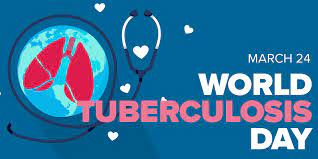Certain cancers have 'sweet tooth': study
Mon 29 May 2017, 13:22:07
Some types of cancers are more sugar hungry than others and fuel themselves from body glucose, according to a new study that paves the way for novel targeted therapies to treat the deadly disease.
Researchers wanted to find differences between the metabolism of two subtypes of non-small cell lung cancer - adenocarcinoma (ADC) and squamous cell carcinoma (SqCC).
"It has been suspected that many cancer cells are heavily dependent on sugar as their energy supply, but it turns out that one specific type - squamous cell carcinoma - is remarkably more dependent," said Jung-whan Kim, assistant professor at University of Texas at Dallas in the US.
About one quarter of all lung cancers are SqCC, which has been difficult to treat with targeted therapies.Researchers tapped into a large database of about 33 types of cancer gathered from more than 11,000 patients.
They found that a protein responsible for transporting glucose into cells was present in significantly higher levels in lung SqCC than in lung ADC.The protein, called glucose transporter 1 (GLUT1) takes up glucose into cells, where the sugar provides a fundamental energy source and fuels cell metabolism, researchers said.
With elevated GLUT1 implicated in SqCC's appetite for sugar, researchers looked for additional evidence by examining human lung tissue and isolated lung cancer cells, as well as animal models of the disease.
"We looked at this from several different
experimental angles, and consistently, GLUT1 was highly active in the squamous subtype of cancer. Adenocarcinoma is much less dependent on sugar," said Kim, senior author of the study published in the journal Nature Communications.
experimental angles, and consistently, GLUT1 was highly active in the squamous subtype of cancer. Adenocarcinoma is much less dependent on sugar," said Kim, senior author of the study published in the journal Nature Communications.
Researchers also investigated the effect of a GLUT1 inhibitor in isolated lung cancer cells and mice with both types of non-small cell lung cancer.
"When we gave GLUT1 inhibitors to mice with lung cancer, the squamous cancer diminished, but not the adenocarcinoma. There was not a complete eradication, but tumour growth slowed," researchers said.
The team also found that GLUT1 levels were much higher in four other types of squamous cell cancer: head and neck, esophageal and cervical.
These are very different organs and tissues in the body, but somehow squamous cell cancers have a very similar commonality in terms of glucose uptake, researchers said.
This type of cancer clearly consumes a lot of sugar. One of our next steps is to look at why this is the case, they said.
"As a culture, we are very addicted to sugar. Excessive sugar consumption is not only a problem that can lead to complications like diabetes, but also, based on our studies and others, the evidence is mounting that some cancers are also highly dependent on sugar," Kim said.
"We'd like to know from a scientific standpoint whether we might be able to affect cancer progression with dietary changes," Kim added.
No Comments For This Post, Be first to write a Comment.
Most viewed from Health
AIMIM News
Latest Urdu News
Most Viewed
May 26, 2020
Do you think Canada-India relations will improve under New PM Mark Carney?
Latest Videos View All
Like Us
Home
About Us
Advertise With Us
All Polls
Epaper Archives
Privacy Policy
Contact Us
Download Etemaad App
© 2025 Etemaad Daily News, All Rights Reserved.






.jpg)

























